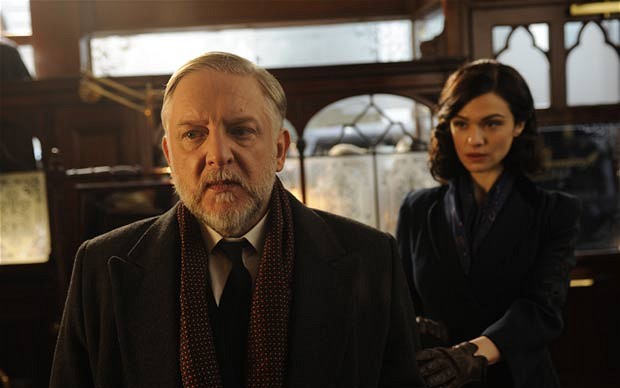
In The Deep Blue Sea, an ordinary love triangle becomes a profound tragedy. A woman (Rachel Weisz) leaves her affluent and prestigious older husband (Simon Russell Beale) for a younger man (Tom Hiddleston) who is more vital, but aimless, troubled and unreliable. The younger man cannot match her love for him.
The fling is doomed. The tragedy is that she knows it, but cannot help herself. As with many addictions, her passion for him drives her to do what she knows is self-destructive.
The story is set is grim post-war London and director Terence Davies vividly paints the period and place.
One magically evocative scene takes place in an underground station serving as a bomb shelter during the Blitz. A man sings Molly Malone in a plaintive tenor, with his fellow Londoners joining at the chorus, as the camera slowly pans the train platform filled with people waiting out the raid. In another scene, a pub is filled with singing patrons. Everyone is having fun, sharing a moment of trivial conviviality, but Rachel Weisz is looking at her lover and having a moment of profound feeling.
Weisz is excellent, and all of her scenes with Beale are especially searing. The Deep Blue Sea is well-crafted and deeply, deeply sad.
